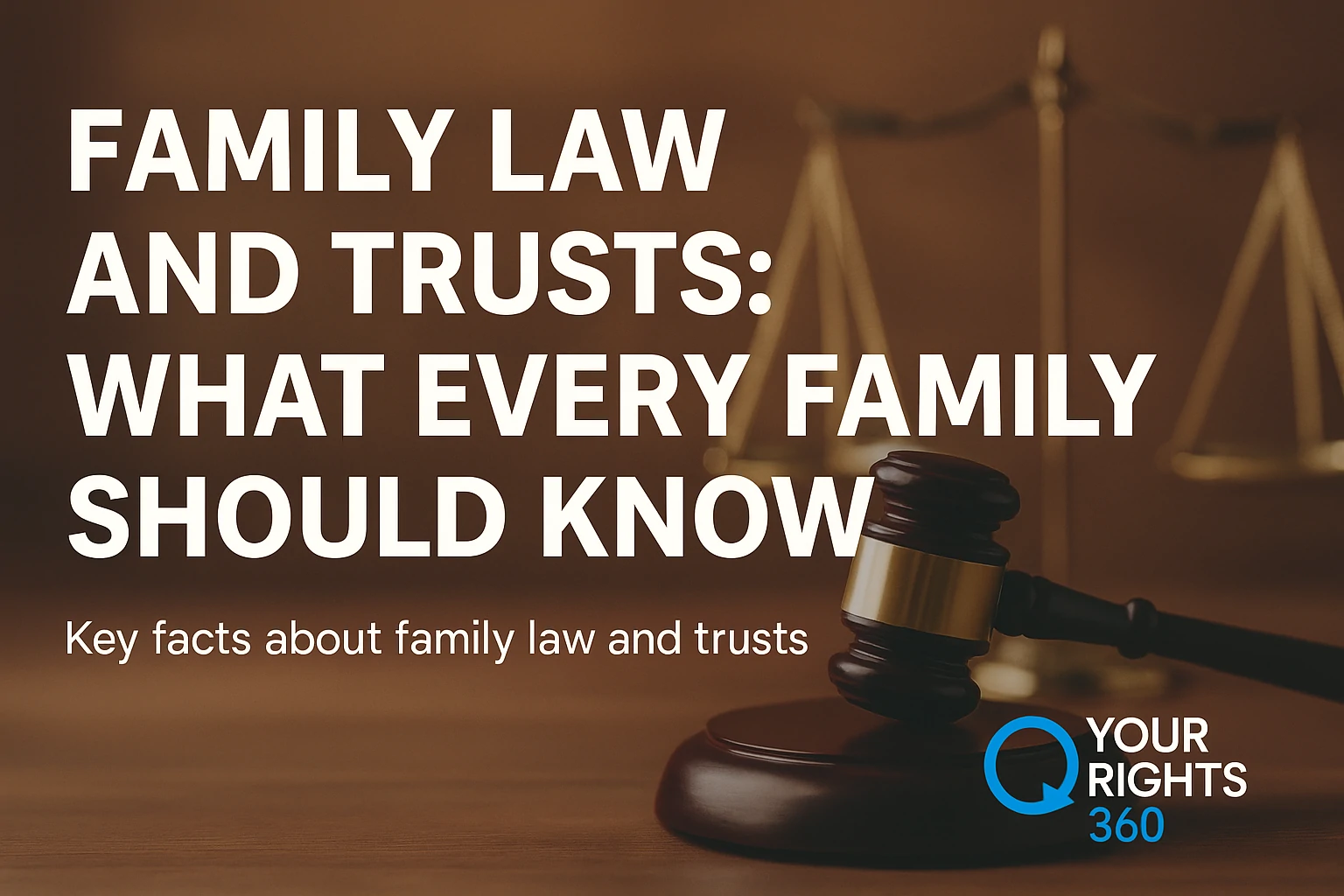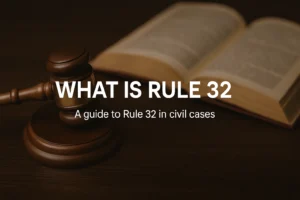Family law sets rules that guide people during family problems. It helps solve issues like divorce, child care, property, and support. Trust law helps protect money and assets. Many families use trusts to save for the future or pass things down after death.
Sometimes both laws come into play. A person may want to protect trust money during divorce. A parent may build a trust to support a child. These situations can bring stress. People often feel lost and unsure about their legal rights.
This article explains both family law and trusts in simple terms. It shows how they connect. It also helps you understand what to expect if both affect your case. You will not need legal training to follow this guide.
Read this before you take action. Learn the basics. Then talk to a lawyer who understands both areas. Smart planning can protect your family, money, and peace of mind.
What Is Family Law?
Family law deals with personal issues between close relatives. It helps solve problems tied to marriage, children, or safety. Each state sets its own rules, but the goal remains the same. The law aims to protect children, split property in a fair way, and keep families safe.
Many people enter family court during a divorce. Some couples agree on how to end things. Others fight over money, children, or the home. The court steps in to decide who stays, who pays, and who raises the kids. If one parent moves away or earns more, the judge may change the orders.
Custody law puts the child first. Parents may share care or one may lead. Judges check if the child is safe, healthy, and going to school. They also look at the bond between parent and child. Custody gives duty, not power.
Other parts of family law include support orders, abuse claims, guardianship, and parental rights. The court looks at facts and tries to give fair results in each case.
What Is a Trust?
A trust is a legal tool that holds assets for someone else. The person who creates it is the “grantor.” The person who manages it is the “trustee.” The person who benefits from it is the “beneficiary.” Trusts can be simple or complex, but they all protect property.
Many families use trusts to plan for the future. A parent may create a trust to leave money to a child after death. A grandparent may use one to help with school costs. Some trusts help people with special needs. Others protect wealth during legal fights.
A trust avoids probate court. That saves time and money. They also allow privacy, since they do not become part of public records. Trusts can limit how money is spent. They can also protect assets from certain types of debt.
Not all trusts work the same way. Some allow full access. Others lock money until a certain date or event. Some are made during life. Others take effect after death. A lawyer can help you choose the best option for your goals.
When Family Law and Trusts Meet
Family law and trusts often overlap. A divorce may include assets held in trust. A parent may set up a trust for a child. A blended family may use a trust to protect children from a first marriage. These cases need extra care.
In divorce, the court may look at the trust. If one spouse used trust money during the marriage, it may become part of the divorce. If the trust was created before the marriage and stayed separate, it may stay protected. This depends on state law and the trust’s terms.
In custody, a parent may use a trust to support a child. The court may view this as a gift or a legal duty. A trust can also limit how a child gets money, which may help the parent control spending. If the court sees risk of misuse, it may appoint a guardian over the trust.
Estate planning often blends both legal fields. Parents may name a trustee to manage assets after death. This protects children until they grow up. If a family has conflict, the trust helps avoid court battles. It can also protect special needs children from losing public help.
Trusts in Divorce Cases
Divorce cases often raise questions about who owns what. If one person holds money in a trust, the other may ask for part of it. This creates legal tension. Courts look at many facts to decide.
If the trust belongs to only one person and was never shared, the court may not divide it. If both spouses used the trust during marriage, it may count as a shared asset. The court checks when the trust was created, who gave the money, and who used it.
A trust that pays regular income to a spouse may become part of support. Courts may add that income when setting alimony or child support. Even if the trust itself stays safe, the money it gives out may affect the case.
People can use trusts to protect their money before marriage. This works like a prenup. The key is to keep the trust separate and clear. Any mix of personal and shared funds can create risk.
Trusts for Children in Family Law
Trusts can help children during tough family times. In divorce, one parent may want to give money but not full control. A trust makes this possible. The trustee watches the money. The child uses it as needed for school, health, or life needs.
Some parents set up a trust for future use. This helps protect children if something happens to the parent. It also gives the child support even if the other parent is not in the picture. Courts like this plan because it shows long-term care.
In some cases, the court may order a parent to use a trust. This may happen when a parent misuses money in the past. It also happens when large sums are at stake. The trust protects the child’s interest and keeps records of spending.
Trusts can also work with guardianship. If a child’s parents die or lose rights, a trust can hold money until the court names a new guardian. This avoids loss and protects the child’s future.
Legal Help Matters
Trust and family law both need care. A mistake can cost time and money. A lawyer who understands both can help you plan or defend your rights. Do not wait until a problem grows. Early advice often saves more than it costs.
Some lawyers focus only on trusts. Others focus only on family court. But some handle both. This can help you avoid risk and build a strong plan. Ask clear questions and pick someone with trust and family law experience.
Bring records to your first meeting. This may include court orders, trust papers, property deeds, or account statements. The more the lawyer knows, the better they can help.
Conclusion
Family law and trusts both protect people. One handles relationships. The other handles property. When they connect, things can get complex. But with care and planning, you can protect your rights and your loved ones.
A trust can be a powerful tool during divorce or custody fights. It can also protect children or help plan for the future. Family law helps settle the rest, where children live, who pays support, or who keeps the home.
Both areas need clear thinking. Use simple steps. Get help when you need it. Your family’s future matters. So does your peace of mind. Know your rights and use the law to stay safe and secure.
Q&A Section
Q: What happens to a trust during divorce?
A: A court may count trust assets as separate or shared, depending on how the trust was used. If both spouses used it during marriage, it may become part of the case.
Q: Can a parent use a trust instead of child support?
A: Courts may allow this when the trust meets the child’s needs. But the court must approve it, and it depends on state law and trust terms.
Q: Does the court control how trust money is spent?
A: In some cases, yes. If the trust helps a minor or comes from a court order, the court may review spending to make sure it helps the child.
Q: Can a trust protect money from a spouse?
A: If set up before marriage and kept fully separate, a trust may stay protected. But poor planning or shared use can put it at risk during divorce.




